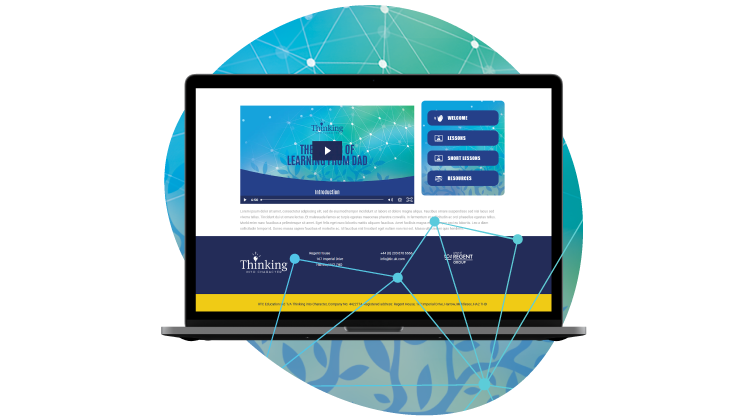Sign In
|Sign Up
Please sign in first
Not a member?
Please simply create an account before buying/booking any courses.
Create an account for free!
Persistence

Thinking into
Character
programmes to help
you achieve more
Persistence
To achieve success is to have a myriad of traits that include realising one’s potential and utilising of that potential to the best of their ability. Sounds easy don’t you think? Well, as easy it may sound at first, where many people often fail in achieving success is not because other words, to ‘Persist’; to embrace the challenges, to accept the hardships and the failures along the journey to riches, learning from it and continuing their path when everyone else has given up. Persistence can be a hard trait to maintain, as it often is questioned when failure comes knocking at your doorstep. However, there are ways to train your mind to be battle hardened and ‘persistent’ in all your endeavours, such as having a clear desire, a plan to achieve it, along with associating yourself with a mastermind group. This article will first delve into what persistence really is and what are the pre-requisites for persistence, as persistence is somehow interconnected to a great many factors and other traits of the great achiever, such as desire and will-power. Moreover, it will extend on explaining other, more easily identifiable traits with notable examples of how the persistence of great achievers were applied in their unique situations and triumphed over all odds. Contrastingly, it should be known that persistence is not always strong in a great many individuals, as they do not follow up and learn from failures, and often are afraid of persisting due to the fear of criticism, especially by close friends and relatives. Thus finally concluding that persistence is, arguably, one of the more difficult traits to attain, if one was to achieve success, but it certainly is not impossible.
To ‘Persist’ is to continue firmly or obstinately towards a particular goal without shying away from your desire. A similar definition of the word is provided by the Oxford English Dictionary too, which comes on to the next point of what really creates persistence in the first place. ‘Desire’ is the feeling of wanting something strongly and makes up most of what we call persistent. It is ‘Desire’ that coerces us into making definite goals and definite plans to achieve the riches we want, thus making our minds understanding the road ahead, which in turn, leads us into being ‘Persistent’ in our journey.
The strength of persistence for each person, however, is not the same once created, as it solely depends on the intensity of the individual’s desire to achieve success. In the topic of achieving riches, a great way of explaining the intensity of the desire, is the particular types of consciousness certain individuals possess to attract their fortunes, namely; the ‘Poverty consciousness’ and ‘Money consciousness’. The ‘Poverty consciousness’, as it sounds, is the weaker of the two, as it is the type of consciousness that does not inculcate habits that would discipline the individual to be prepared for oncoming hurdles. The ‘Money consciousness’, however, is the total opposite, as it is the consciousness that is actively inculcated by an individual to instil favourable habits, which in turn, result in expected riches. Great personalities, such as Henry Ford, Thomas Edison, Steve Jobs, and Elon Musk to name but a few are textbook cases of ‘Money consciousness’ in action. In other words, if one is to inculcate a strong persistence, then one should possess a strong desire to achieve a particular goal. However, just having such a desire will not give the necessary tools to maintain a strong persistence, as the preparation of habits that create for a ‘Money consciousness’ in the minds of the individual is what acts as the fuel that drives the strength of desire, which in turn strengthens persistent behaviour.
Although the pre-requisites of ‘Desire’ and ‘Money consciousness’ are quite difficult to recognise at the outset when analysing an individual, one can still confirm that these pre-requisites are fulfilled with the help of positivism. This is due to the recognisable traits that can be identified when the individual has strong ‘Persistence’. As positivism deals with what can scientifically be verified through empirical research, ‘Persistence’ showcases some intriguing traits that can be visibly identified in an individual. Of course, the intensity of these traits can vary from each individual, as every individual does not have the same strength of persistence. But in this instance, we will be analysing an individual that showcases these textbook traits of persistence. The story of Derek Redmond is one story that has gripped many generations of sportsmen and everyday people throughout the world due to his unfaltering display at the 1992 Olympic Games in Barcelona, Spain.
As a boy, young Redmond was a gifted athlete that excelled in track sprinting. As a result of his gifts, his father was a man who constantly supported the young athlete and moulded him to become the world renowned athlete he is now. In a positivist lens, we can understand that Derek Redmond has a strong relationship with his father, thus resulting in the trait of ‘Co-operation’. Here the athlete created a ‘Master mind’ group with his father that sympathised and understood the athlete’s challenges, which in turn strengthened his persistence in becoming an Olympian. This comes on to the next set of traits that are interlinked like the cogs in a bicycle. As a schoolboy, Redmond always dreamt and felt that he was destined to be a great Olympic athlete, therefore having a strong ‘Desire’ and a ‘Definiteness of Purpose’, due to his gifted talents. But just having a desire never did him any good, which lead him to creating ‘Definite Plans’ of workouts with ‘Accurate Knowledge’, so as to test his limits and bring out the best of his ability.
Redmond initially aimed for the 1988 Olympic Games in Seoul, Korea, and expected to great results. However, his dreams were dashed when he suffered a myriad of injuries to the build-up that made him withdraw from the games. As history would tell, injuries were not enough to hamper his persistence, as he was confident of his ability in reaching the pinnacle of sports. In other words, the young athlete was ‘Self-reliant’; possessed the belief in his ability to be the best there is out there. The withdrawal during the 1988 games meant that he had to wait another 4 years to have a shot at glory, and that is exactly what he did.
Redmond trained hard and found ways of increasing his ability, thus making it a ‘Habit’ to always reach higher than his previous self. These traits enabled him to push on and eventually take gold in the 1991 IAAF World Championships in Tokyo, Japan in the 4x400m relay. Although producing great results in the build-up to the 1992 games, he still suffered from a number of injuries that endangered his chances. However, the strong ‘Co-operation’ of his ‘Master mind’ group enabled him to stave off injury and guarantee his spot in the 1992 games.
Come the 1992 Olympic Games in Barcelona and Redmond hit the ground running with exceptional results in the 400 metres, as he posted the fastest time in the first round and went on to win his quarter- final race, leaving his competitors in the wind. He just seemed to be getting warmed up though. Riding on a crest of adrenaline, Redmond prepared for his semi-final race, who was the crowd fourite in winning the race. Having a great warm-up, he put his starting blocks down and listened to the starter’s instructions. ‘On your mark’, ‘Set’, ‘GO!!’ Redmond spluttered out of the blocks with explosive power in lane 5 and only seemed to be getting faster, as he was entering the last 200 metres or so of the race. But then it happened. His hamstring tore and instantly made him come to a standstill due to the excruciating pain. A few seconds just sitting on his lane and the race finished without him crossing the line, or was it? When the medics came with a stretcher to help the injured athlete, Redmond suddenly got up and started hobbling towards the finish line in complete agony. He later said that the reason for him to do what he did on that fateful day, was due to his bitter memories of withdrawing in the 1988 games, thus making him realise that he did not come to Barcelona just to start a race, but to also finish it. Even in the face of absolute defeat, Redmond was still ready to do his level best to finish what he started, which comes on to the trait of ‘Will power’, where he concentrated all his thoughts on finishing the race because that is what he came to do in Barcelona in the first place, regardless of his result.
As his father came from the stands to support him, he crossed the finish line with tears streaming down his face, due to his failure to run the way he wanted to. However, when one looks closer to his end result, one can easily identify that his hobble to the finish line would not have been done by any other ordinary individual, as the ‘Desire’ and ‘Will power’ would have been already shattered by the sheer agony of the injury. Thus justifying that many individuals, who excel in their respective fields often possess strong ‘Persistence’, which can be clearly identified by their journey to the pinnacle and Derek Redmond is just one example out of many who showcase those traits of strong ‘Persistence’.
Contrastingly, there are individuals who do have the same features as that of Derek Redmond, but often do not achieve their desired goals. Why is that? Simply because the traits mentioned in the previous paragraphs were not strong enough to withstand the rigours of the challenges. In other words, ‘Persistence’ almost always tests the individual’s might with a series of challenges that include a great many failures, which makes it the duty of the individual to take it in a positive light and learn from it, instead of accepting absolute defeat. This is what many call the ‘Persistence Test’. Through this test, it is possible to figure out the main symptoms of the individuals who lack strong ‘Persistence’. Although there are a number of symptoms that can be identified here, we will go through the more recognisable ones that render persistence completely obsolete.
Jeff Bezos, the founder of Amazon is one example that showcases a strong desire to achieve his goals with a simple platform that enabled individuals to purchase books online with ease. Initially he accepted the fact that there is a 70% possibility of Amazon going bankrupt, however, his strength of ‘Desire’ was what overpowered the possibility of failure. When one looks at this example, one can immediately identify that his persistence was strong because his desire was strong. Similarly though, if he had a ‘Weakness of Desire’, Amazon would not have existed. Amazon’s success was not sheer dumb luck too, as Bezos drew clear ‘Plans’ for his business and always acted upon it, so as to keep good momentum in the development of the company. In other words, the entrepreneur was ‘Willing’, instead of ‘Wishing’ to achieve his objectives. In hind sight, one can identify that one of the key traits that Bezos instilled in his venture was the embracing of criticism. In many cases, it is the ‘Fear of Criticism’ that destroys many an individual’s path to achieving riches, as criticism from loved ones such as relatives and friends cannot be borne by the individual. This fear is what gives an excuse to blame others for failure and use the ‘Poverty consciousness’ to deviate from their path to riches. Of course, there are a number of other symptoms that can be understood in hindsight when analysing the successful traits of the rich and famous, such as procrastination, lack of interest and even compromise of objectives that result in weak It is easy then to understand, that in order to develop strong ‘Persistence’, one has to have a ‘Definite Purpose’ and ‘Definite Plans’ to achieve it, backed by strong desire. Moreover, it is also important to block the mind from negative influences, especially from family and friends, and develop a strong bond with people who are ready to support you to achieve the objective.
From Derek Redmond to Jeff Bezos, one can easily identify that strong ‘Persistence’ is key to achieving riches. Furthermore, with a strong analysis into their behaviour to the path of fame, we can draw out those traits and learn from them so we can apply it in our everyday lives and become who we want to be, live out the lives we want and be the best that we can be. Do keep in mind though that the strength of ‘Persistence’ depends on how willing you are to develop a purpose and plan to achieve your goal, while associating yourself with the right people. When one trait is weak, your ‘Persistence’ is weak. Therefore, it is imperative that you stay focused and maintain that intense desire to achieve greatness.
| Download article as PDF |

 The Power of Learning from DAD
The Power of Learning from DAD Think and Grow Rich
Think and Grow Rich The Mindset
The Mindset